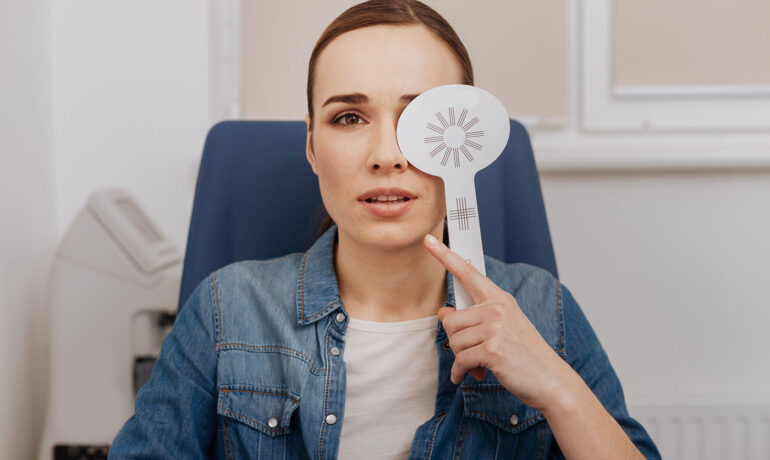Many people assume that vision therapy is only for children who have trouble with their vision. However, vision therapy is an effective treatment for adults as well. As adults, we spend a lot of time using computers and other digital devices, which can strain our eyes and lead to vision disorders that can be treated with vision therapy.
What is Vision Therapy?
Vision therapy is a type of therapy that is designed to improve the way your eyes work together. It is a non-surgical and non-invasive treatment that uses a variety of exercises and techniques to improve your visual skills. Vision therapy is often used to treat binocular vision disorders, such as amblyopia, strabismus, and convergence insufficiency, which can affect how your eyes work together and can cause issues such as double vision, headaches, and eyestrain.
Reasons Why Adults Need Vision Therapy
Digital Eye Strain
As mentioned earlier, many adults spend a lot of time using digital devices such as computers, smartphones, and tablets. This can cause digital eye strain, which is a condition that occurs when your eyes become fatigued from staring at a screen for too long. Symptoms of digital eye strain include headaches, eyestrain, dry eyes, and blurred vision. Vision therapy can help alleviate these symptoms by teaching you how to use your eyes more efficiently and effectively.
Binocular Vision Disorders
Binocular vision disorders are conditions that affect how your eyes work together. These conditions can cause issues such as double vision, headaches, and difficulty reading. Vision therapy can help treat binocular vision disorders by training your eyes to work together more effectively. This can improve your ability to read, focus, and see in 3D.
Sports Vision
If you are an athlete, vision therapy can help improve your performance. Vision therapy can help you develop better visual skills, such as hand-eye coordination, depth perception, and visual tracking. This can improve your ability to catch a ball, hit a target, or make split-second decisions on the field.
Traumatic Brain Injury
If you have suffered a traumatic brain injury, vision therapy can help you recover. Traumatic brain injuries can cause a variety of vision problems, including double vision, blurred vision, and difficulty focusing. Vision therapy can help you regain your visual skills and improve your overall quality of life.
Reading Problems
If you have trouble reading, vision therapy can help. Vision therapy can improve your eye movement, eye tracking, and visual processing skills, which can help you read more efficiently and effectively. This can be especially helpful for adults who need to read a lot for work or school.
How Vision Therapy Works
Vision therapy typically involves a series of exercises and techniques that are designed to improve your visual skills. These exercises may include:
- Eye exercises that strengthen your eye muscles
- Activities that improve your eye movement and tracking
- Visual processing activities that improve your ability to process visual information
- Training with special lenses or prisms that help improve your binocular vision
Vision therapy is typically performed in an optometry office, and sessions usually last between 30 minutes to an hour. The length and frequency of treatment will depend on the severity of your condition and your individual needs.
Choosing a Vision Therapy Provider
Vision therapy is an effective treatment for a variety of visual problems that can affect adults, and choosing the right provider is crucial for a successful outcome. At Rancho Santa Fe Optometry, our team of experienced optometrists and vision therapists have years of experience providing vision therapy to both children and adults. We understand that each patient is unique, and we will work with you to create a personalized treatment plan that meets your individual needs. Whether you are dealing with digital eye strain, binocular vision disorders, sports vision, traumatic brain injury, or reading problems, our vision therapy program can help you achieve better visual function and improve your overall quality of life.
At Rancho Santa Fe Optometry we offer comprehensive eye examinations for all ages. With a focus on children’s vision and vision therapy, our doctors test for visual acuity, visual efficiency skills and visual information processing starting in early infancy. The practice also provides diagnosis, treatment and management of diseases that affect the human eye and visual system, including dry eye syndrome, diabetic retinopathy, cataracts, macular degeneration and keratoconus.
